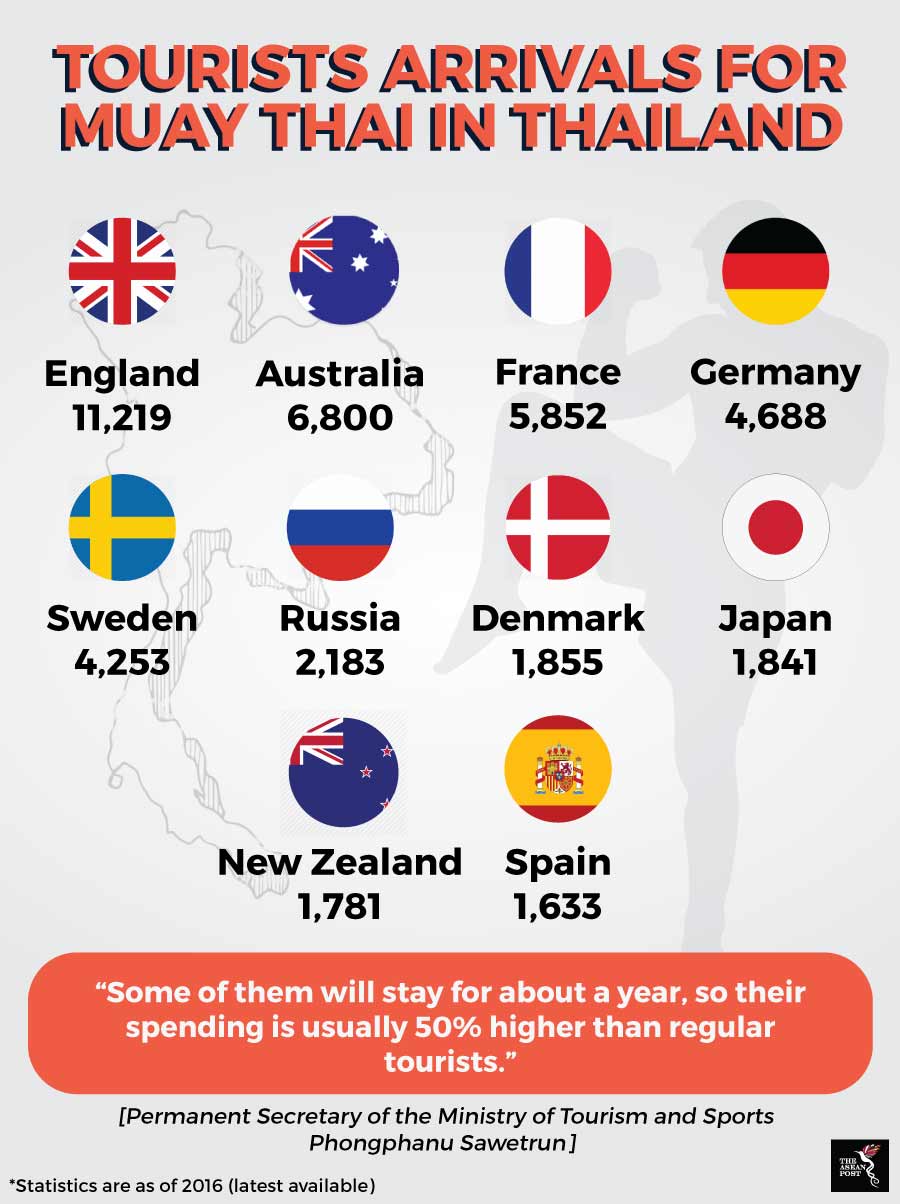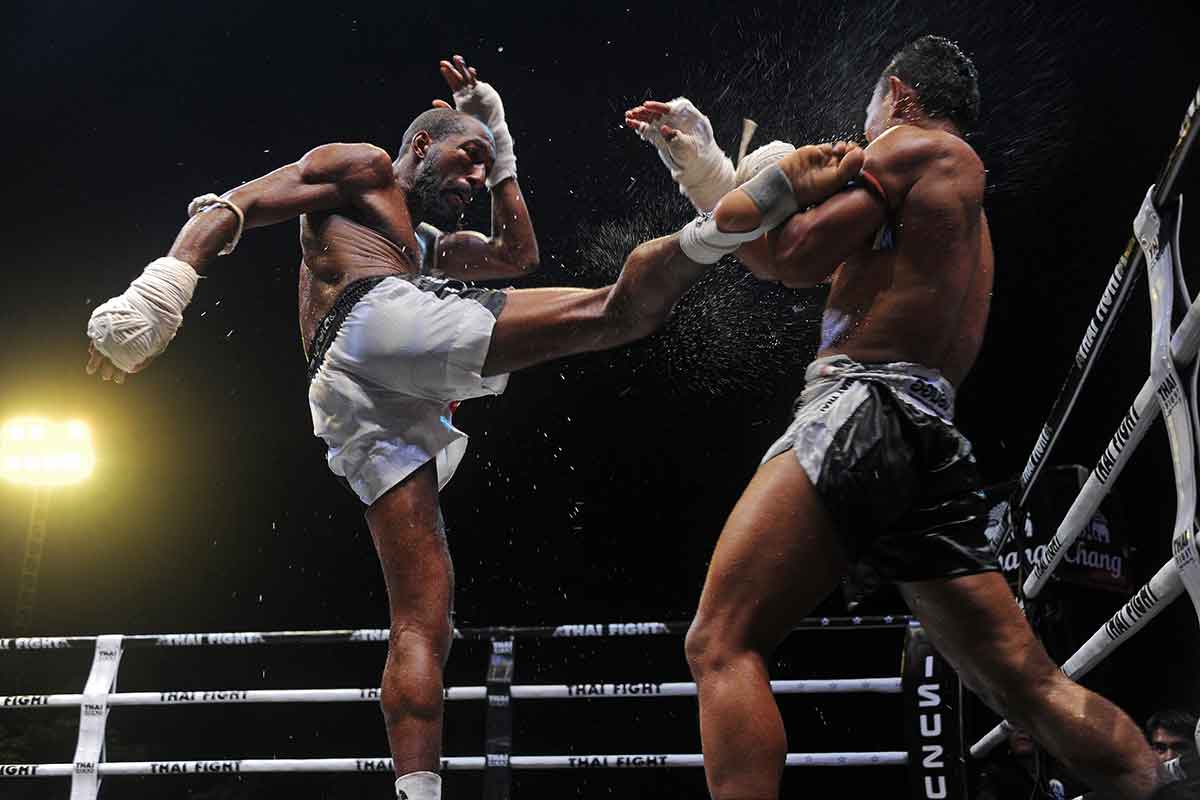Last week, Thai media reported that a group of prominent Thai boxing (Muay Thai) fighters had handed in a letter to the Sports Authority of Thailand to protest a new bill which seeks to ban children from fighting in the ring. The group - led by the president of the Muay Thai Naiyahanomtom Association, former WBC world champion and legendary boxer Samart Payakaroon - believe that if the bill is enacted, it would sabotage the future of Muay Thai. Other prominent boxers present when the letter was delivered included Kaopong Sittichuchai and Jaroenthong Kiatbanchong.
The amendment to the 1999 Boxing Act was proposed by members of the National Legislative Assembly and is now being reviewed by the cabinet. It requires boxers below 20 years of age to seek parental consent and those below 15 to seek parental consent plus permission from boxing supervising authorities.
The argument by boxers is that most of them are from impoverished families who can barely make ends meet and see boxing as a way out of poverty. On the other hand, the bill has garnered support from child rights activists and doctors who say the sport can cause brain damage in young boxers and may even lead to neurological disorders like Alzheimer’s and Parkinson’s Disease later in life.
 Source: Various
Source: Various
Muay Thai tourism
It’s a given that tourism is big in Thailand. In fact, according to the Tourism and Sports Ministry, tourism contributed 17.7 percent to Thailand’s gross domestic product (GDP) in 2016 and 16.7 percent in 2015. Meanwhile, the World Travel and Tourism Council says tourism accounted for 10.4 percent of global GDP and 313 million jobs, or 9.9 percent of total employment in 2017. Most often, these numbers are attributed to Thailand’s beaches, cuisine and megamalls but it wouldn’t be fair to completely ignore the number of tourists that Thailand’s national sport – Muay Thai – brings in.
Last year, the Tourism Authority’s Intelligence Centre cited its 2016 survey where 11,219 British people, 6,800 Australians and 5,852 French nationals visited Thailand to take lessons in the classical martial art. Others arriving to study also came from Germany (4,688), Sweden (4,253), Russia (2,183), Denmark (1,855), Japan (1,841), New Zealand (1,781) and Spain (1,633).
Seeing the potential in Muay Thai tourism, The Permanent Secretary of the Ministry of Tourism and Sports Phongphanu Sawetrun said in 2017 that the ministry was ready to promote Muay Thai as a field of tourism that could generate annual income for the country, supporting foreigners and tourists who are interested in learning the sport.
According to the minister, there are currently many foreigners taking Muay Thai classes in Phuket, adding that there are an increasing number of foreigners becoming more interested in picking up the martial art, and that this target group is also in the category of “quality tourists”.
“Each person will spend a long time learning and practising Muay Thai and some of them will stay for about a year, so their spending is usually 50 percent more than regular tourists,” he said.
A delicate balance
But the number of foreigners taking up the sport is another reason local boxers are fazed by the new bill.
“Even now, Thai boxers can barely compete with foreign fighters. If we forbid child boxing, it will spell the end for Muay Thai in this country," Samart said. A sentiment which Kaopong also shared when he said the new law would disadvantage Thai fighters because foreign boxers are allowed to practise punching and kicking at the tender age of five or six.
Meanwhile, a 12-year-old boxer Purithat Poonsuk – who has been boxing since he was nine - told a local television channel that he and many other child kickboxers also objected to the bill as they, too, are afraid that local boxers will be unable to compete with their overseas rivals.
With the explosive popularity of Mixed Martial Arts (MMA), there is little doubt that there has been a spill-over effect on other martial arts. Thailand is blessed for being home to one of the more popular traditional martial arts but if the concerns of these boxers hold any water, then the Land of Smiles is at risk of losing its heritage, culture, and the prospect of reaping the lucrative tourism dollar that Muay Thai can bring in. However, the health concerns of children involved should not be ignored either and so a lot of thought will have to go into finding a win-win situation.
Related articles:
Maintaining the sustainability of tourism in Thailand
Thailand’s Chinese tourist dilemma
